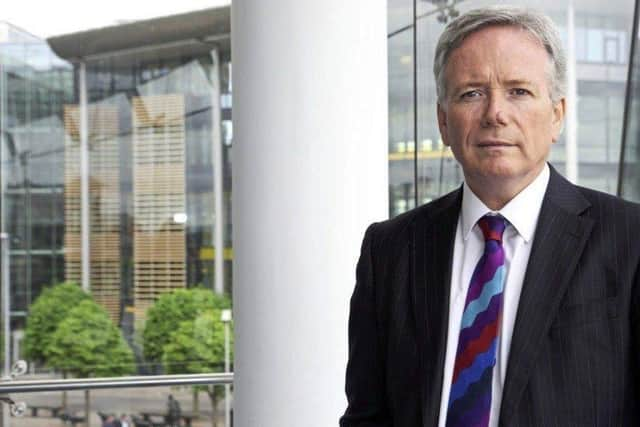Northern Ireland should pursue ‘near elimination strategy’ to tackle virus, says BMA
and live on Freeview channel 276
Dr Tom Black who leads an organisation representing the views of GPs, consultants, medical students and other health professionals in Northern Ireland, suggested the so-called ‘zero Covid’ strategy favoured by some experts may not be possible here.
Dr Black, chair of the British Medical Association’s Northern Ireland Committee, was speaking to the News Letter after the total number of coronavirus patients in hospital here dipped below the peak recorded in the first wave of the pandemic last year for the first time since the autumn.
Advertisement
Hide AdAdvertisement
Hide AdHe said the health service has “turned a corner” but stressed that the pressures on wards and intensive care units remains serious.


“I think we have turned a corner but if you were working in intensive care you would be dealing with really difficult cases in a volume that you wouldn’t have seen before the last year,” Dr Black said. “Certainly, in the medical wards there are still an awful lot of people, many of them on the continuous positive airway pressure (C-PAP). This is still very hard on the patients, very hard on their relatives and very hard on the staff.”
He continued: “The number of new infections in the community is coming down but it still quite high.”
During the seven days leading up to Friday, there were an average of 95.5 cases for every 100,000 people in Northern Ireland.
Advertisement
Hide AdAdvertisement
Hide AdDr Black said: “During the summer it was 10 per 100,000. So let’s put it in context, we’re still quite high.
“We still need to bring it down to that 10 per 100,000 to be in a ‘near elimination’ strategy.
“There are a number of strategies people talk about. One is a ‘zero Covid’ strategy, which probably isn’t viable I think in our open and democratic society. But a near elimination strategy is something we should aim for.
That would have figures throughout Northern Ireland of 10 per 100,000 over the course of a week.
Advertisement
Hide AdAdvertisement
Hide Ad“There’s nothing to say we can’t do that, that we can’t bring it down to that.
“The advantage of it would be that you are able to do track and trace much more easily, with those smaller numbers. That’s the sort of thing to aim for. We would be able to test, track and trace those far better.”
Last week, three cases of the South Africa variant of coronavirus were detected in Northern Ireland.
Dr Black said that the ‘near elimination’ strategy would allow health authorities to focus their efforts on keeping new variants checked.
Advertisement
Hide AdAdvertisement
Hide Ad“If you have thousands of people with new cases it’s very hard to find the new variants,” he said.
“I think there’s a lesson for us in this, not just about Brazil, South Africa or whatever other variant we’re dealing with. It’s about being able to be responsive in a timely manner to new variants that will inevitably come.
“We shouldn’t be spending all of our time and resources on dealing with infection.”
——— ———
A message from the Editor:
Thank you for reading this story on our website. While I have your attention, I also have an important request to make of you.
Advertisement
Hide AdAdvertisement
Hide AdWith the coronavirus lockdown having a major impact on many of our advertisers — and consequently the revenue we receive — we are more reliant than ever on you taking out a digital subscription.
Subscribe to newsletter.co.uk and enjoy unlimited access to the best Northern Ireland and UK news and information online and on our app. With a digital subscription, you can read more than 5 articles, see fewer ads, enjoy faster load times, and get access to exclusive newsletters and content. Visit https://www.newsletter.co.uk/subscriptions now to sign up.
Our journalism costs money and we rely on advertising, print and digital revenues to help to support them. By supporting us, we are able to support you in providing trusted, fact-checked content for this website.
Alistair Bushe
Editor